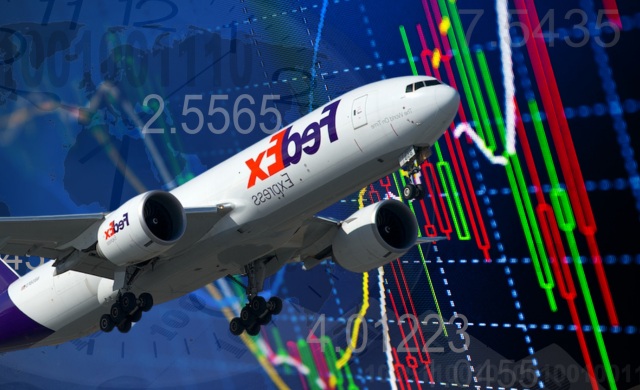FedEx (NYSE:FDX) saw its shares fall over 5% in early trading on Wednesday after the logistics powerhouse issued a profit forecast for the current quarter that fell short of market expectations. Alongside competitor United Parcel Service (NYSE:UPS), FedEx’s performance is being closely watched as an indicator of broader economic trends.
Heightened uncertainty linked to President Trump’s aggressive trade policies—particularly toward China, a leading global exporter—has unsettled business confidence. This has led many companies to delay or scale back investment and spending until the economic outlook becomes clearer.
In a recent earnings call, FedEx CEO Raj Subramaniam described the global demand environment as “volatile.” He also highlighted the impact of Trump’s removal of duty-free status on low-cost imports from China-affiliated online retailers such as Shein and Temu, which has negatively affected FedEx’s revenue streams.
The Memphis-based company projects adjusted earnings per share between $3.40 and $4.00 for the fiscal first quarter, trailing analyst forecasts of $4.06, according to LSEG data referenced by Reuters. Due to the ongoing economic uncertainty, FedEx also withheld full-year guidance for both revenue and earnings.
This cautious outlook contrasts with FedEx’s strong fourth-quarter results, driven by substantial cost-cutting efforts. The company reported $6.07 earnings per share on revenues of $22.2 billion, surpassing analyst estimates of $5.96 and $21.84 billion respectively. Over the past fiscal year, FedEx reduced expenses by $2.2 billion.
Analysts at BMO Capital Markets noted that, “Provided demand pressures do not worsen, we expect gradual improvement in results over the course of the year, supporting a modest increase in earnings per share.” However, they cautioned that a stronger rebound hinges on a recovery in business-to-business activity, which appears unlikely in the near term given ongoing contraction in Purchasing Managers’ Index (PMI) data across many developed markets.
